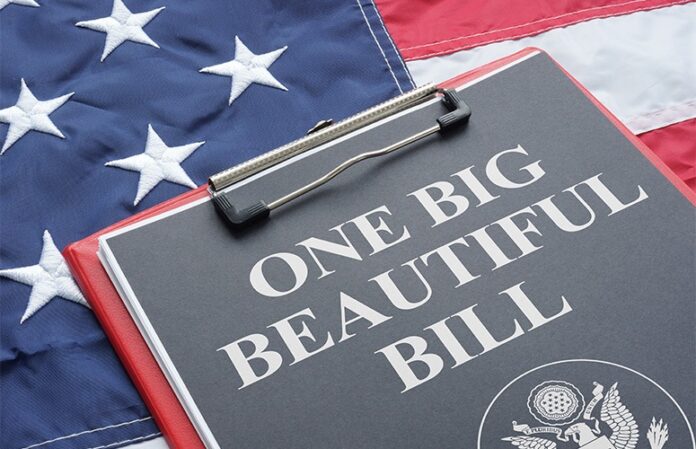The 2025 tax year brings significant changes for New Jersey residents as new provisions under the One Big Beautiful Bill Act (OBBBA) take effect. Designed to provide relief to a wide array of taxpayers, these changes are projected to deliver meaningful savings for households across the state, with New Jersey residents expected to save an average of $1,896 annually. The legislation, which introduces a range of new deductions and credits, aims to benefit seniors, families with children, tipped workers, and even new car buyers.
Among the most impactful measures is the increase in the standard deduction, which allows single filers to claim $15,750, heads of household $23,625, and married couples filing jointly $31,500. With 86% of New Jersey households opting for the standard deduction, this change alone is expected to save taxpayers an average of $188 per return. For the smaller portion of residents who itemize, the expanded SALT (state and local tax) deduction, now capped at $40,000, could mean substantial reductions for households paying high property and state taxes, a major consideration for New Jersey homeowners.
Seniors will see additional relief through the expanded senior deduction, raising potential savings to $1,387 per senior in New Jersey. This change reflects the state’s growing emphasis on protecting the financial well-being of older residents, particularly those on fixed incomes. The OBBBA also increases estate and gift tax exclusions, providing relief for families planning inheritances or intergenerational transfers. For estate filers in New Jersey, this could translate to significant tax savings on large estates, allowing families to preserve more wealth.
For working households, OBBBA introduces new incentives for common expenses. Homegrown perks include deductions for auto loan interest on new U.S.-assembled vehicles, providing an average annual benefit of $277 per qualified household. Tipped workers, who make up tens of thousands of New Jersey’s service industry, can now deduct up to $25,000 of tip income, generating potential savings of $2,500 per worker annually. Families with young children also see targeted benefits, including an increased Child Tax Credit and federally backed “Trump Accounts,” which allow a $1,000 tax-advantaged account per eligible newborn.
For New Jersey taxpayers, these changes are not merely abstract numbers—they reflect tangible improvements to household budgets. With nearly 1.6 million qualifying children in the state, families can expect meaningful relief on their returns, especially when combined with other measures such as the standard deduction and senior credits. The legislation’s provisions are structured to assist a broad spectrum of taxpayers, regardless of filing status or whether residents choose standard or itemized deductions.
Financial planners and households alike are advised to review the OBBBA’s provisions carefully. The legislation affects multiple aspects of personal finances, from estate planning and education savings to automotive purchases and day-to-day budgeting. By understanding how each of the eight primary provisions applies to individual circumstances, New Jersey residents can maximize their tax savings and plan more effectively for the year ahead.
For those exploring housing investments, property ownership, or budget planning in light of these changes, Explore New Jersey’s real estate section offers guidance on navigating state-specific financial considerations. From insights on property taxes to strategies for leveraging new deductions, homeowners and prospective buyers can align their tax strategies with broader financial goals. Click here for the full report.
The OBBBA represents one of the most comprehensive adjustments to tax policy in recent years, and New Jersey households are positioned to benefit significantly. Residents across the state, from first-time homeowners to seasoned investors, can expect noticeable impacts on their financial planning, making 2025 a year of both opportunity and strategic decision-making.












